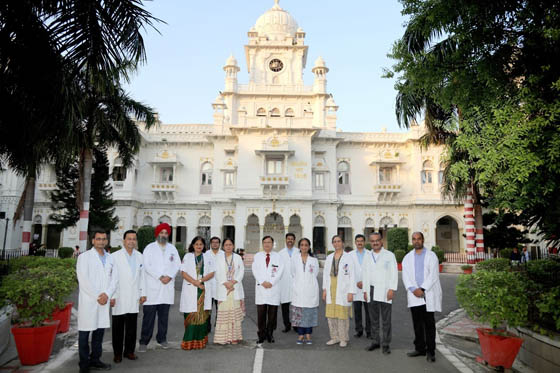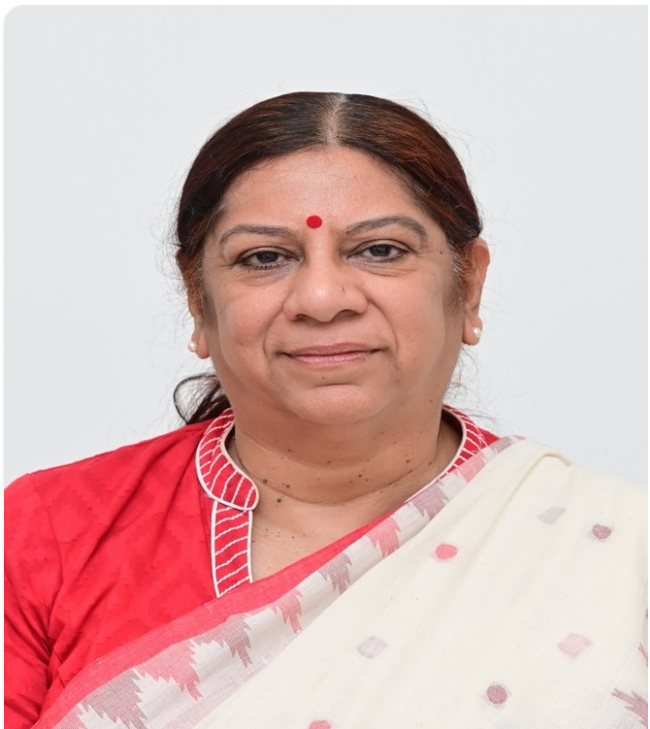
The foundation stone of King George’s Medical College was laid by the Royal Highness, Prince of Wales, in 1906, during his second visit to India for his Coronation Durbar as King Emperor. His Majesty gave his consent to establish the institution and to designate it by his name. Since then, this institution has been a pariah for excellence in medical education, unparalleled medical ethics, groundbreaking research, and exceptional patient care.
KGMU (King George’s Medical University) located in Northern India, is amongst the premier medical and research institutes of the country. Alumni of this University are working at many key positions as policy makers in many eminent Institutions in India. KGMU will share evidence from Cochrane results with various stakeholders and policy makers of India to imbibe advantage of translational research.
The university is having four streams namely Faculty of Medical Sciences, Dental Sciences, Nursing and Paramedical Sciences. The faculties are running undergraduate, post graduate, super-speciality and postdoctoral programs in clinical medicine and allied disciplines. KGMU started its journey with a meagre 12 departments and now has grown to 58 departments with a bed strength of nearly 4500. There are fifteen medical and seven nursing colleges affiliated to the University. Notably, the University was ranked ninth in the year 2021 by NIRF, a ranking body of the Government of India constituted to rank the Universities of the country. KGMU is widely known to be the flagship medical institution of the state of Uttar Pradesh. The guidelines/SOP’s formulated by KGMU are validated by the state government and followed by most of the medical colleges of the state.
KGMU’s intramural funding program for generating evidence through systematic reviews started in the year 2019. Since then, the KGMU had adopted evidence-based medicine practice training for the budding health care providers from the undergraduate, post graduate, super-speciality and research trainees. The University has funded many faculty members to undergo training at the earlier Cochrane South Asia Centre at Vellore. The vision of the University has been to inculcate a robust practice of EBM among all healthcare providers. We are running EBM programs in the University through periodic organization of workshops on research methodology, systemic reviews and meta-analysis. Workshops are mandatory for all doctoral students of the University. Twenty-five workshops on evidence-based medicine, writing systematic reviews and meta-analysis have been organised in the last five years so far.
Our priority would be to disseminate the importance of evidence-based research and its importance in deriving significant outcomes of clinical studies to benefit and improving health system. Our approach would be to promote the participation of most of the medical colleges of the state of Uttar Pradesh and also the adjoining states like Madhya Pradesh, Bihar, Punjab, Jharkhand, West Bengal and north east states. The evidence generated through Cochrane should reach all the stakeholders which includes patients and healthcare providers; we will work in this direction to create an ecosystem of workflows of information for all.
The highest priority is to make healthcare providers in the region understand the importance of adopting evidence-based practice with integrity and transparency. Given the widespread use of unproven therapies, developing a culture of rationale thinking, referring to the Cochrane database and updating oneself regularly would be one of the most important takeaways of our Cochrane Centre.
We at KGMU would attempt to work on the following three aspects:
- Developing a vibrant ecosystem to inculcate the practice of EBM among stakeholders and policy makers in the geographical areas.
- Augmenting the EBM outreach to a broad-range of individuals and groups i.e. clinical, research, and non-governmental organizations through social media, open workshops and symposiums.
- Extending the knowledge of evidence-based translational research in local language to the patients, general public and healthcare providers.
Patron

Prof. Soniya Nityanand
Hon’ble Vice Chancellor
King George’s Medical University UP, Lucknow
| Advisory committee | |
| Prof. Hardeep Singh Malhotra Dean Research King George’s Medical University UP, Lucknow | Prof. Virendra Atam Dean Faculty of Medical Sciences King George’s Medical University UP, Lucknow |
| Prof. G K Singh Dean Faculty of Dental Sciences King George’s Medical University UP, Lucknow | Prof. Punita Manik Dean Faculty of Nursing King George’s Medical University UP, Lucknow |
| Prof. Anil Nischal Dean Faculty of Paramedical Sciences King George’s Medical University UP, Lucknow | Prof. Rajiv Garg Dean Quality Control and Accreditation King George’s Medical University UP, Lucknow |
| Core Cochrane Faculty | |
| Prof. Amita Jain Head, Department of Microbiology King George’s Medical University UP, Lucknow | Prof. R. K. Garg Head, Department of Neurology King George’s Medical University UP, Lucknow |
| External experts: | |
| Dr. Amit Goel Additional Professor Department of Gastroenterology SGPGIMS, Lucknow | Prof. Ravishankar Ramachandran Chief Scientist, Molecular and structural biology, sophisticated analytical instrument facility, CSIR-CDRI, Lucknow |
| Internal Experts: | |
| Prof. Apul Goel Department of Urology King George’s Medical University UP, Lucknow | Dr D. Himanshu Reddy Department of Medicine King George’s Medical University UP, Lucknow |
Administrative Committee:
Director
Prof. Balendra Pratap Singh
Department of Prosthodontics
King George’s Medical University UP, Lucknow
Email: cochrane@kgmcindia.edu, balendrapratapsingh@kgmcindia.edu
Co-directors
Prof. Hardeep Singh Malhotra
Department of Neurology
King George’s Medical University UP, Lucknow
Email: drhsmalhotra@gmail.com
Prof. Raghuwar Dayal Singh
Department of Prosthodontics
King George’s Medical University UP, Lucknow
Email: raghuwards@rediffmail.com
Dr Anand Srivastava
Department of Respiratory Medicine
King George’s Medical University UP, Lucknow
Email: drsrianand@gmail.com
Dr. Neeraj Kumar
Department of Neurology
King George’s Medical University UP, Lucknow
Email: drneeraj2903@gmail.com
Contact address:
Research cell
King George’s Medical University UP, Lucknow 226003
Email: cochrane@kgmcindia.edu. Phone no.: 9839121151
